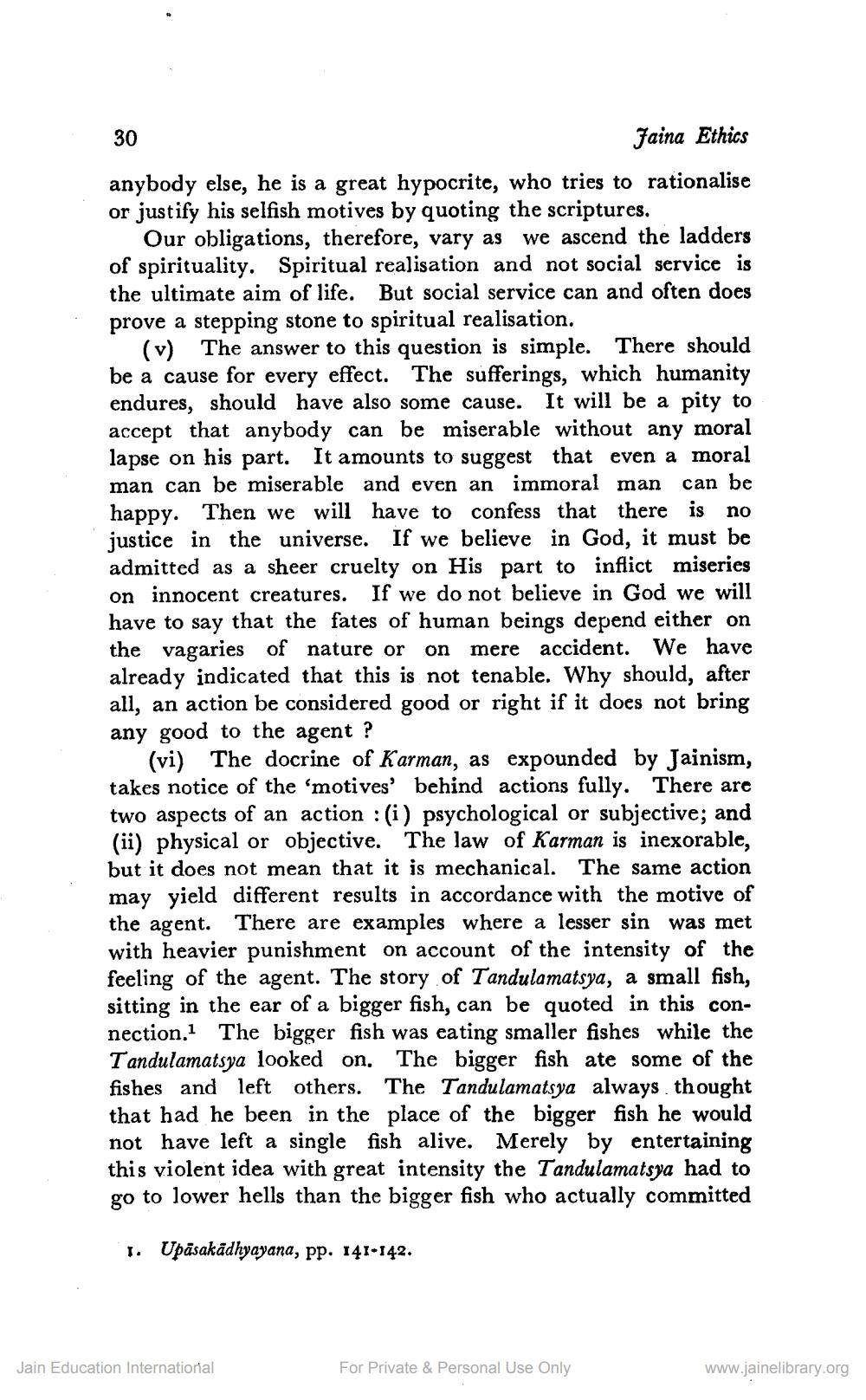________________
30
Jaina Ethics anybody else, he is a great hypocrite, who tries to rationalise or justify his selfish motives by quoting the scriptures.
Our obligations, therefore, vary as we ascend the ladders of spirituality. Spiritual realisation and not social service is the ultimate aim of life. But social service can and often does prove a stepping stone to spiritual realisation
(v) The answer to this question is simple. There should be a cause for every effect. The sufferings, which humanity endures, should have also some cause. It will be a pity to accept that anybody can be miserable without any moral lapse on his part. It amounts to suggest that even a moral man can be miserable and even an immoral man can be happy. Then we will have to confess that there is no justice in the universe. If we believe in God, it must be admitted as a sheer cruelty on His part to inflict miseries on innocent creatures. If we do not believe in God we will have to say that the fates of human beings depend either on the vagaries of nature or on mere accident. We have already indicated that this is not tenable. Why should, after all, an action be considered good or right if it does not bring any good to the agent ?
(vi) The docrine of Karman, as expounded by Jainism, takes notice of the ‘motives' behind actions fully. There are two aspects of an action : (i) psychological or subjective; and (ii) physical or objective. The law of Karman is inexorable, but it does not mean that it is mechanical. The same action may yield different results in accordance with the motive of the agent. There are examples where a lesser sin was met with heavier punishment on account of the intensity of the feeling of the agent. The story of Tandulamatsya, a small fish, sitting in the ear of a bigger fish, can be quoted in this connection. The bigger fish was eating smaller fishes while the Tandulamatsya looked on. The bigger fish ate some of the fishes and left others. The Tandulamatsya always thought that had he been in the place of the bigger fish he would not have left a single fish alive. Merely by entertaining this violent idea with great intensity the Tandulamatsya had to go to lower hells than the bigger fish who actually committed
1. Upasakādhyayana, pp. 141.142.
Jain Education International
For Private & Personal Use Only
www.jainelibrary.org




